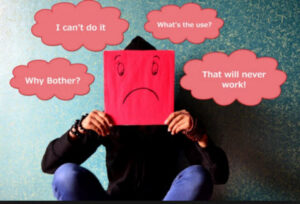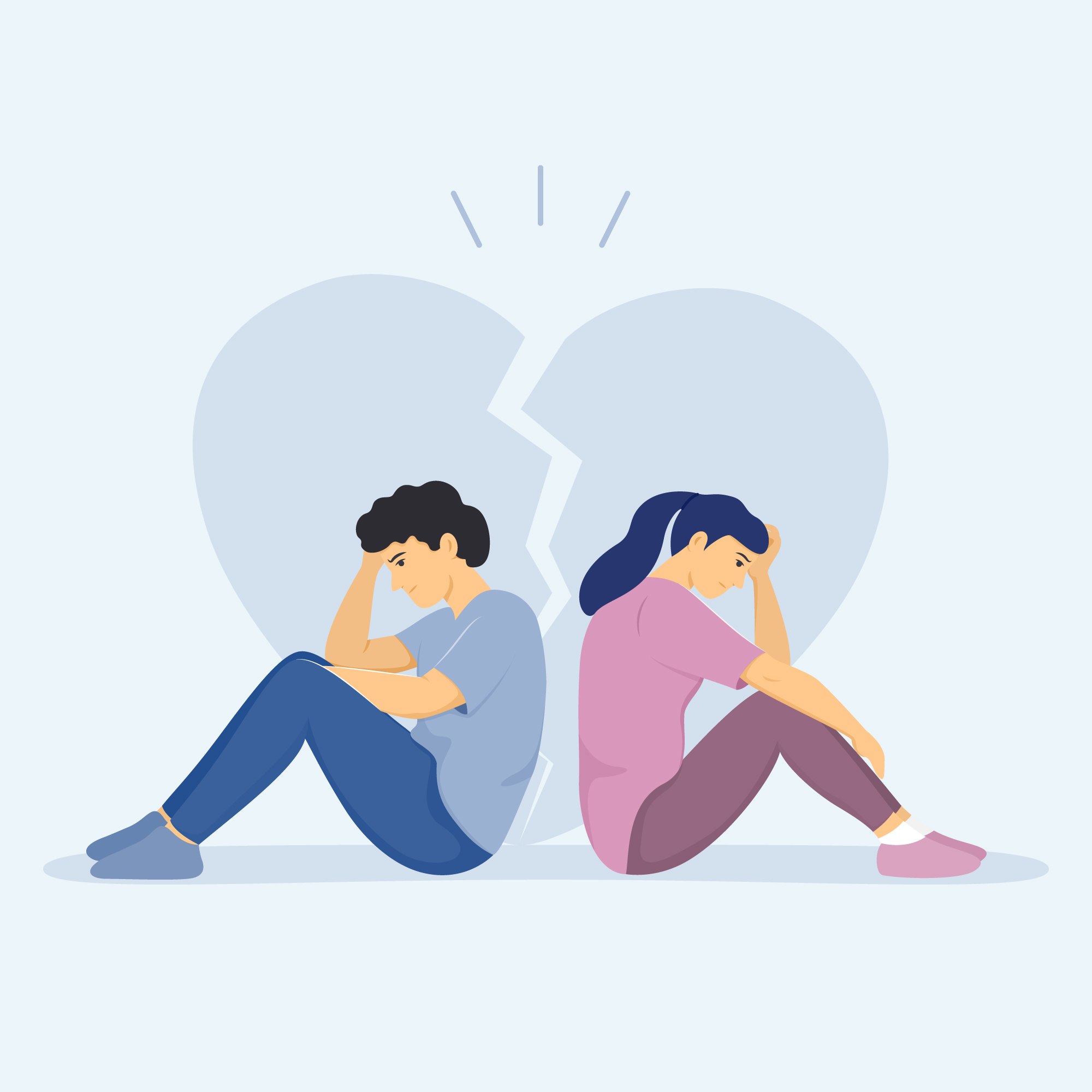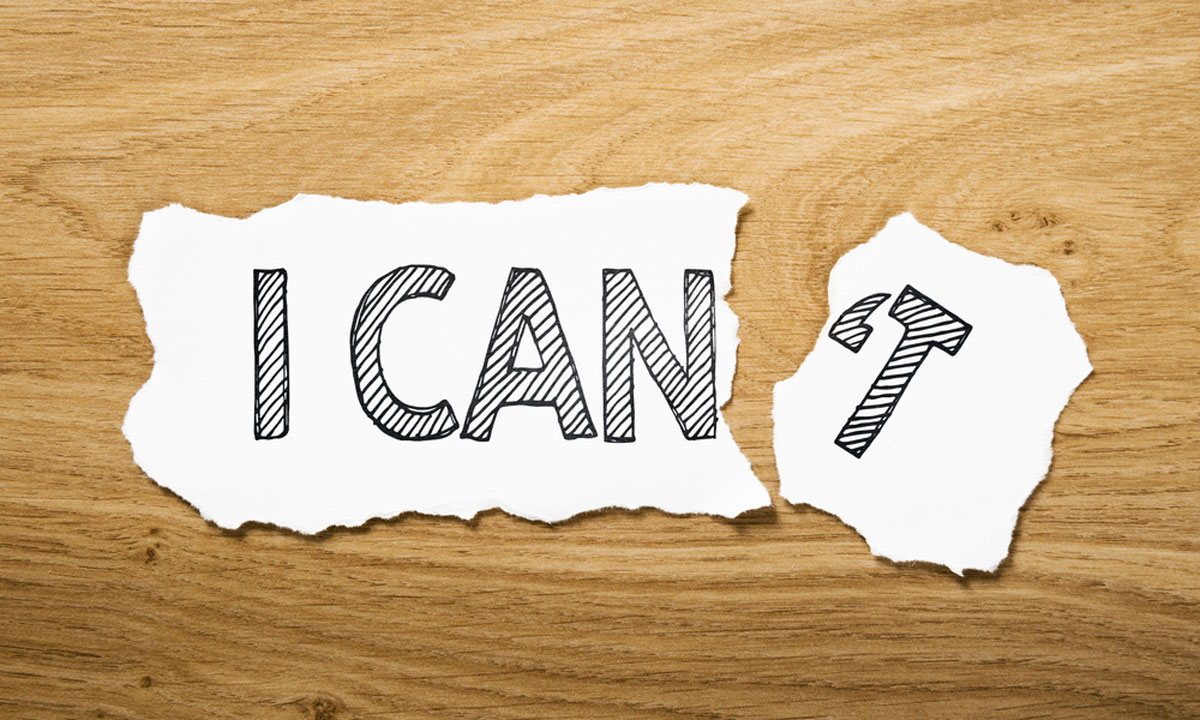We’ve all been there. That feeling of utter hopelessness when we can’t seem to do anything to change our situation. Whether it’s a personal problem or something larger affecting the world around us, feelings of helplessness can be paralyzing. In this blog post, we’ll explore what helplessness is and some of the ways it can affect our lives. We’ll also discuss how to deal with these feelings and move on from them.
Contents
What Is Helplessness?
 Helplessness is a feeling of powerlessness and desperation. It can be brought on by traumatic events, such as physical or sexual abuse, the death of a loved one, or natural disasters. Helplessness can also be caused by chronic stressors, such as unemployment, poverty, or illness.
Helplessness is a feeling of powerlessness and desperation. It can be brought on by traumatic events, such as physical or sexual abuse, the death of a loved one, or natural disasters. Helplessness can also be caused by chronic stressors, such as unemployment, poverty, or illness.
People who feel helpless often feel like they are in over their heads and that they can’t cope with their problems. They may feel like they are stuck and have no way out. This can lead to feelings of hopelessness and despair. Sometimes there are also feelings of guilt and self-blame.
Symptoms of Helplessness

The symptoms of helplessness vary from person to person, but can include:
Feeling Overwhelmed
One of the signs of helplessness is feeling overwhelmed by the situation. This means that the person feels like they can’t handle what is going on and that they are in over their heads. Sometimes there can be a feeling of being out of control.
Feeling Powerless
Another sign of helplessness is feeling powerless. This means that the person feels like they can’t do anything to change their situation and that they are at the mercy of what is happening. They may feel like they are stuck and have no way out.
Feelings of Desperation
People who feel helpless often feel desperate. This means that they feel like they need to do something right away or else they will lose everything. They may be willing to take risks that they wouldn’t normally take in order to try and fix things. It may also lead to self-destructive behaviors, such as substance abuse.
Lack of Control
There may be a lack of control too. This means that the person feels like they are not in charge of what is happening to them and that their life is out of their hands. Even if it is just a temporary situation, it can feel like it is never going to end. Sometimes there may be a feeling that someone else is in control and they are just a pawn in their game.
Feelings of Hopelessness
One of the most common symptoms of helplessness is feelings of hopelessness. This means that the person feels like things will never get better and that there is no point in trying. They may feel like they are stuck in a cycle of pain and suffering with no end in sight. It may be hard to see any positives in their life.
Guilt and Self-Blame
Another symptom of helplessness is guilt and self-blame. The person may feel like they are responsible for what is happening to them and that they could have done something to prevent it. They may also blame themselves for not being able to cope or for not being strong enough. This can lead to low self-esteem and a feeling of worthlessness.
Feelings of Despair
People who feel helpless often feel despairing as well. This means that they have given up on hope and believe that things will never get better. They may feel like there is no way out and that they are doomed to suffer forever. There can be a feeling of emptiness and numbness. It may be hard to feel any positive emotions.
Self-Harm
Self-harm can also be a sign of helplessness. This means that the person is harming themselves as a way to cope with their feelings. It can be a way to punish themselves or to try and numb the pain. Sometimes there can be a feeling of relief after self-harming.
Suicidal Ideation
People who feel helpless often have thoughts of suicide. This means that they are considering ending their life as a way to escape their problems. They may feel like death is the only way out and that there is no other option. Suicidal ideation should always be taken seriously and professional help should be sought immediately.
Causes of Helplessness

There are many different things that can cause someone to feel helpless. Some of these are:
Traumatic Experiences
If there are any traumatic experiences in a person’s life, it can lead to feelings of helplessness. This is because the person may feel like they are unable to cope with what happened and that they are powerless to change things. Traumatic experiences can include abuse, violence, and accidents.
Negative Life Events
Negative life events can also cause someone to feel helpless. These are any events that happen in a person’s life that are negative and stressful. They can be things like losing a job, getting divorced, or having a child diagnosed with an illness. There can be some events that are out of the person’s control, such as natural disasters.
Illness or Injury
An illness or injury can also lead to feelings of helplessness. This is because the person may feel like they are unable to cope with what is happening to them and that their life is out of their control. They may be in pain or have a disability that makes it difficult to do things.
Perceived Lack of Resources
If someone perceives that they lack resources, it can also lead to feelings of helplessness. This means that they feel like they don’t have what they need to cope with their situation. They may feel like they can’t afford to get help or that there is no one who understands them.
Chronic Illness
If someone has a chronic illness, it can lead to feelings of helplessness. This is because the person may feel like they are not in control of their own lives and that their illness is dictating what they can and cannot do. They may also feel like they are a burden to their loved ones.
Depression
Depression is often associated with feelings of helplessness. This is because the person may feel like they are stuck in a cycle of sadness and hopelessness. They may not see any positives in their lives and believe that things will never get better. Depression can lead to all of the symptoms listed above.
Negative Impacts of Helplessness

There are many negative impacts of feeling helpless. Some of these are:
Self-Esteem
Self-esteem is one of the first casualties when we feel helpless. When we cannot do something or solve a problem, our self-esteem takes a hit. We start to feel like we are not good enough, smart enough, or capable enough. This can lead to all sorts of negative emotions, such as depression, anxiety, and even rage.
Relationships
Helplessness can also damage our relationships. If we feel like we cannot rely on ourselves, we will start to rely on others too much. This can create codependent relationships where one person is always taking care of the other. It can also lead to conflict as we try to control those around us in order to make up for our own feelings of inadequacy. Sometimes we may even lash out at the people we love most, simply because we feel so helpless and lost.
Health
Helplessness can also have a negative impact on our health. When we are constantly feeling like we cannot do anything to help ourselves, it can be very stressful. This stress can lead to all sorts of health problems, such as heart disease, high blood pressure, and even obesity. Sometimes we may even develop chronic pain as a way to distract ourselves from our feelings of helplessness.
Treatment of Helplessness

There might be treatment options for people who feel helplessness. Some of these are:
Medications
Medications are one of the best treatments for helplessness. They can help you cope with stress, anxiety, and depression. Sometimes there can be side effects, but with the help of your doctor, you can find a medication that works for you. There are many medications that can treat helplessness, so there is sure to be one that can help you.
Therapy
If medications don’t seem to be helping, therapy might be a good option for you. Therapy can help you learn how to cope with your feelings of helplessness and teach you different ways to deal with stress and anxiety. It can also help you understand why you feel helpless and find ways to change that. Some of these therapies are:
Cognitive-behavioral therapy
This type of therapy can help you learn how to change the way you think about things. It can help you see things in a more positive light and help you find different ways to cope with your feelings.
Interpersonal therapy
This type of therapy can help you understand your relationships and how they might be affecting your feeling of helplessness. It can also help you learn how to communicate better and build healthier relationships.
Family therapy
If your family is supportive, family therapy can be a great option. It can help you all understand what’s going on and how to best support each other. Family therapy can also help identify any patterns that might be contributing to feeling of helplessness. It can also help you learn how to better communicate with your family.
Support groups
If you don’t feel like therapy is right for you, or if you can’t find a therapist that suits your needs, support groups might be a good option. Support groups are filled with people who understand what you’re going through and can offer advice and support. They can also be a great place to make friends who understand what you’re dealing with.
Counseling
Counseling can be another way to get help for feelings of helplessness. Counseling can help you understand your feelings and find different ways to cope with them. It can also help you learn how to communicate better and build healthier relationships. It can also help you understand why you feel helpless and find ways to change that.
How To Avoid Helplessness?

There are many ways to avoid feeling helpless.
Keep Yourself Busy
One way to keep yourself from feeling helpless is to keep yourself busy. If you are constantly doing something, you will be less likely to feel like you have no control over your life. It can also be helpful to focus on things that you are good at or that make you happy. This will help boost your confidence and make you feel more in control. When there are times when you can’t avoid feeling helpless, try to remember that it is only a temporary feeling and that it will pass.
Talk To Someone
Another way to avoid feeling helpless is to talk to someone. When you are feeling overwhelmed, talking to a friend or family member can help you feel better. They can offer support and advice on how to deal with the situation. Sometimes just having someone to talk to can make all the difference. Always take the time to talk to someone if you are feeling helpless, it can really help.
Find Solution
If you are feeling helpless because of a problem, try to find a solution. Often, the best way to deal with a problem is to face it head on. Once you find a solution, you will feel much better and more in control. It is something that can be difficult to do, but it is worth it in the end.
Stay Positive
Another way to avoid feeling helpless is to stay positive. When you are optimistic, it can be easier to see the bright side of situations and find ways to improve them. It is also important to have a good support system, whether that be friends, family or a support group for people with similar problems. Positivity also means taking care of yourself, both physically and mentally. When you are feeling good, it is easier to deal with difficult situations.
Take Action
Finally, one of the best ways to avoid feeling helpless is to take action. If you feel like something needs to change in your life, don’t just sit around and hope it will happen – take steps towards making those changes yourself. It can be difficult, but it is so worth it. You will feel much better and more in control of your life when you take action. It can be as simple as making a phone call or taking a class. Just remember that you have the power to change your life, and don’t let anyone tell you otherwise.
Helping Someone With Helplessness

When you want to help someone who feels helpless, the best thing you can do is to provide emotional support. Some of the ways to help someone are:
Provide Emotional Support
Always try to provide emotional support to someone who is feeling helpless. This will help them to feel better and more capable. It can also give an outlet for feelings of helplessness. It may give them the strength to face the situation head-on. It may give them the courage to take action and make changes.
Make sure that the person knows that you are there for them and that you will support them no matter what.
Encourage Them To Seek Help
If the person is struggling to cope with their helplessness, encourage them to seek professional help. This can be very beneficial for them as it can help them to understand their emotions and how to deal with them. It can also help them to develop coping mechanisms to deal with future situations.
Make sure that the person knows that you support their decision to seek help and that you will be there for them during this process.
Make Them Feel Valued
When someone feels helpless, it is important to make them feel valued. This can be done by listening to them and providing support. It can also be done by showing interest in their life and making time for them. This will help them to feel that they are worth your time and that you care about them. There can be many reasons why someone feels helpless, but you can help to make them feel better by showing that you care.
Be There For Them
When someone is feeling helpless, they need someone to be there for them. Make sure that you are available to talk to them and support them through their tough time. Let them know that you are always there for them and will help them in any way possible. Take the time to listen to them and be understanding. This will help them to feel better and more capable.
Give Them Space
You should always respect the person’s decision if they need space. If they need time to themselves, let them have it. This will help them to process their emotions and come to terms with their situation. Make sure that you are available when they are ready to talk. It can also be helpful to check in with them periodically to see how they are doing.
Make Sure You Are There For Them
You should always be there for the person when they need you. This will help them to feel better and more capable. Take the time to listen to them, be understanding, and provide support. Let them know that you are always there for them and will help them in any way possible. Giving them space when they need it is also important. Check-in with them periodically to see how they are doing and make sure that you are always there for them.
Conclusion
Helplessness is a difficult emotion to deal with, but you can help someone who is feeling helpless by providing emotional support. You can also encourage them to seek professional help, make them feel valued, and be there for them. If they need space, give it to them and respect their decision. Ultimately, your goal is to help them through their tough time and make sure that they know you are always there for them. There are many ways to help someone who is feeling helpless, so use whatever method you feel is best.
I hope this article was helpful. If you have any questions or would like to share your own experiences with helplessness, please contact us.
A Word From Therapy Mantra
Your mental health — Your psychological, emotional, and social well-being — has an impact on every aspect of your life. Positive mental health essentially allows you to effectively deal with life’s everyday challenges.
At TherapyMantra, we have a team of therapists who provide affordable online therapy to assist you with issues such as depression, anxiety, stress, workplace Issues, addiction, relationship, OCD, LGBTQ, and PTSD. You can book a free therapy or download our free Android or iOS app.


